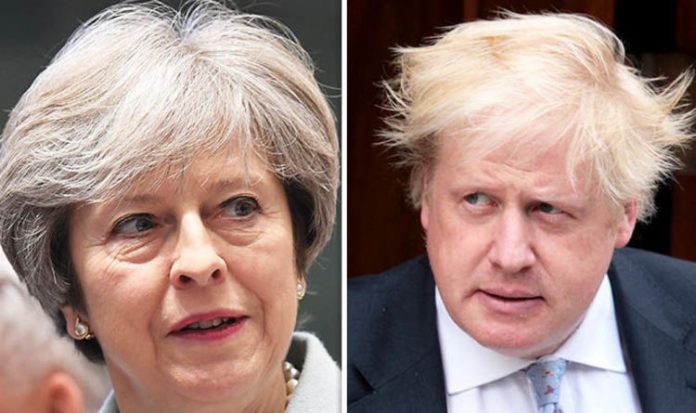On Sunday, UK Prime Minister Theresa May pledged to “compromise” so that Britain can finally leave the EU, in a move likely aimed at paving the way for Labour Party leader Jeremy Corbyn to back a customs union deal with the bloc.
Former UK Foreign Secretary Boris Johnson has promised that Tory MPs will not allow Prime Minister Theresa May to yield to a soft Brexit despite her attempts to clinch such an agreement with opposition leader Jeremy Corbyn.
“To agree to be non-voting members of the EU, under the surrender proposed by Jeremy Corbyn — it cannot, must not and will not happen”, Johnson underscored in his article published in the Daily Telegraph.
Referring to Corbyn, Johnson berated May for meeting “a man who still believes in the precepts of Bolivarian revolutionary socialism”.
“So it seems utterly incredible that he has now been invited into Downing Street to negotiate a Brexit deal. And it is doubly incredible that the government is – so we are told — willing to accede to his terms”, the former foreign secretary noted.
He warned that the Tories acceding to Corbyn’s demands on a customs union would mean that they would be “tearing up a promise made thousands of times in parliament and elsewhere”.
“If the UK were to commit to remaining in the Customs Union, it would make a total and utter nonsense of the referendum result. We would be out of the EU, but in many ways still run by the EU”, Johnson pointed out, adding that he does not “really believe the appalling news” about all this.
His comments followed May arguing in an informal address to voters on Sunday that she had no choice but to try to find a cross-party agreement with Corbyn because otherwise Britain might not leave the EU at all.
May emphasised that the referendum campaign was not fought on party lines and that the public wanted to see politicians “working together more often”.
She ruled out the option of the UK leaving the European Union with no deal, saying that London would either get a divorce deal passed or remain in the bloc as the UK Parliament opposes a no-deal Brexit.
London and Brussels clinched a divorce deal late last year, but the UK parliament refused to back the agreement and cannot agree on any alternative measures. The country was supposed to have left the bloc on 29 March but missed the deadline.
The European Union gave London until 12 April to either come up with an alternative solution or leave without a deal on that day.








